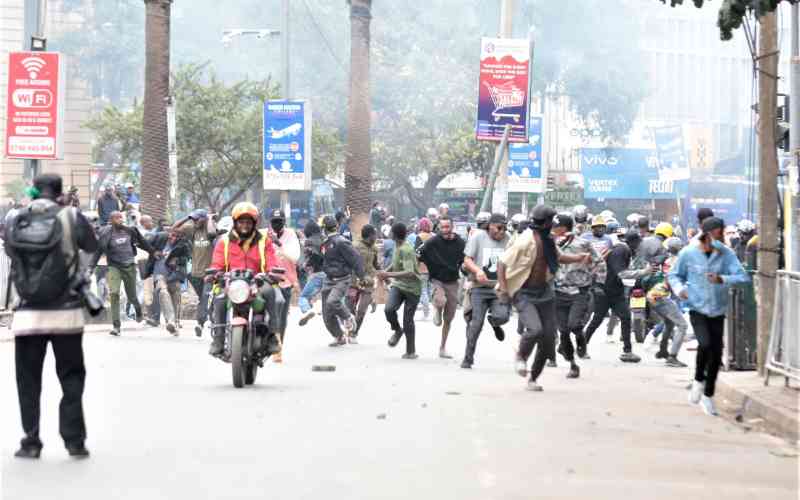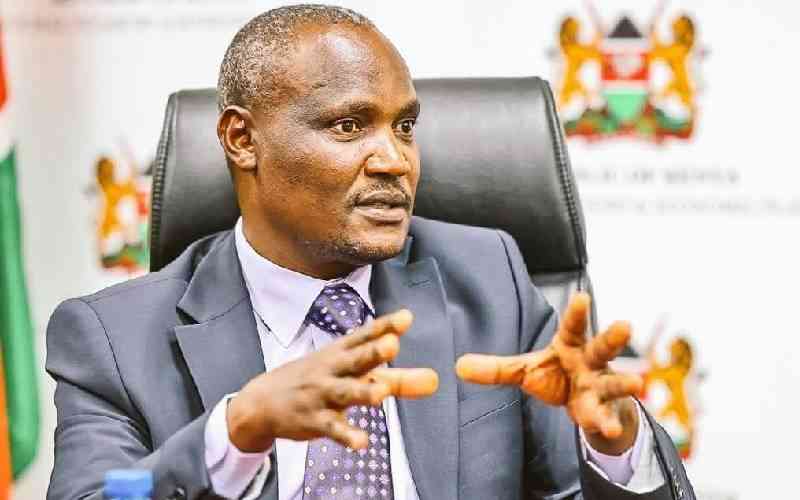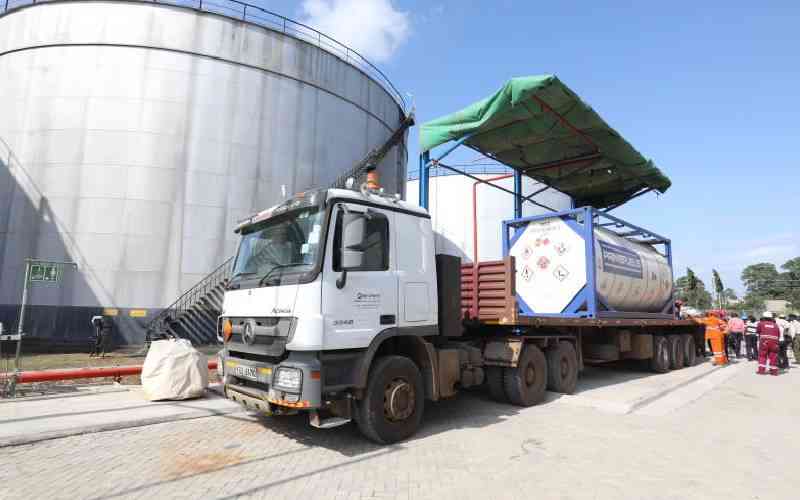×
The Standard e-Paper
Stay Informed, Even Offline

Protestors run to safety from police teargas in Moi Avenue, Nairobi on July 16, 2024.[Boniface Okendo, Standard]
Kenya has been on the edge since Tuesday, June 18, when anti-government protests began, to oppose the unpopular Finance Bill 2024.







